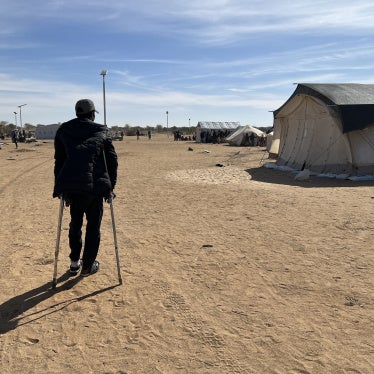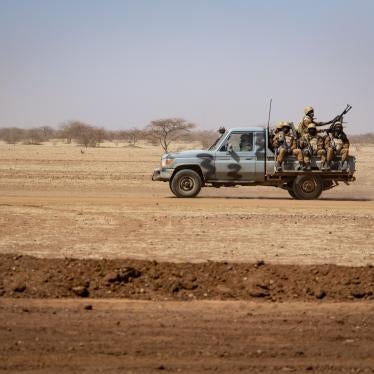Since 2010, the Guinean government has made progress in addressing the serious human rights problems that characterized Guinea for more than five decades, including the successful completion of parliamentary elections in 2013, a reduction in abuses by the security services, and some gains in addressing long-standing impunity. However, the institutions which uphold the rule of law remain weak and key investigations into atrocities are still not complete.
Advances in addressing impunity include the opening by the judiciary of investigations into the 2007 killing of some 130 demonstrators; the 2009 massacre and rapes of opposition supporters in a Conakry stadium; the 2010 torture of members of the political opposition; the 2012 killings in the southeastern village of Zoghota; and, the 2013 killing of demonstrators protesting the delay in parliamentary elections. However, progress in most of these cases was hampered by inadequate resources and the failure of members of the security services to respond to judicial summons.
In line with the many recommendations calling for violence against demonstrators and opposition members to be investigated and those responsible prosecuted, we urge Guinea to intensify efforts to ensure justice in these cases, and to put any indicted government officials, on administrative leave for the duration of any investigation and trial.
Discipline within and civilian control over the security forces has improved; however, members continue to be implicated in incidents of excessive use of force, the mistreatment of detainees, and criminality including extortion, bribe-taking, and outright theft.
Furthermore, the security forces have long demonstrated a lack of political neutrality evident in the persistent allegations by members of the opposition and the use of racial slurs against them, as well as the failure to provide equal protection to citizens of all ethnic groups, notably those supporting the political opposition. The government’s failure to acknowledge this problem raises concern in advance of the 2015 elections.
Human Rights Watch encourages Guinea to swiftly implement UPR recommendations to ensure investigations into and prosecution of violations by security forces, in addition to improved human rights training for law enforcement officers.
We are encouraged by the apparent reduction in cases of torture; improved conditions for judges; the establishment of the Superior Council of Judges (Conseil supérieur de la magistrature); and, the revision of key legal texts to bring them in line with international standards.
However, striking deficiencies in the judiciary continue to undermine rights and the rule of law. Prisons and detention centers operate below international standards, mainly due to severe overcrowding and prolonged pretrial detentions. The failure of the Cour d’assises—which hears matters involving the most serious crimes—to meet regularly, contributes to the problem. However, the Ministry of Justice has taken steps to improve prison administration, leading to some improvements in healthcare and the malnutrition rate among inmates.
Human Rights Watch supports the recommendations of the UPR that Guinea should ratify the Optional Protocol to the Convention against Torture, to codify the crime of torture into its penal code, to improve detention conditions, and to abolish the death penalty. Finally, we note the establishment of an independent human rights institution, but are concerned it lacks the requisite independence and funding.








